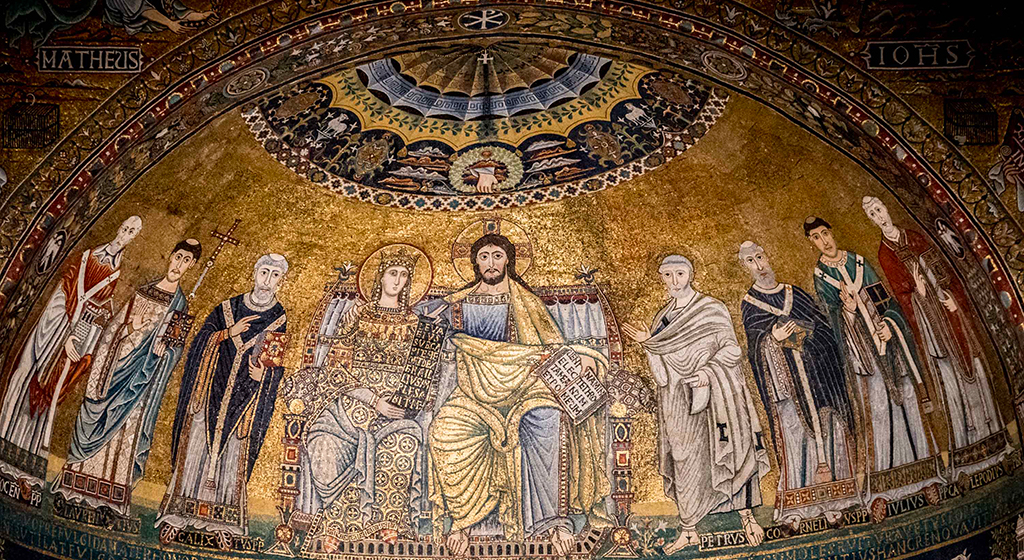Memory of the Church
Reading of the Word of God
Alleluia, alleluia, alleluia
I am the good shepherd,
my sheep listen to my voice,
and they become
one flock and one fold.
.
Alleluia, alleluia, alleluia
Matthew 6,7-15
'In your prayers do not babble as the gentiles do, for they think that by using many words they will make themselves heard. Do not be like them; your Father knows what you need before you ask him. So you should pray like this: Our Father in heaven, may your name be held holy, your kingdom come, your will be done, on earth as in heaven. Give us today our daily bread. And forgive us our debts, as we have forgiven those who are in debt to us. And do not put us to the test, but save us from the Evil One. 'Yes, if you forgive others their failings, your heavenly Father will forgive you yours; but if you do not forgive others, your Father will not forgive your failings either.
Alleluia, alleluia, alleluia
I give you a new commandment,
that you love one another.
Alleluia, alleluia, alleluia
The "Our Father" is the centre of the Sermon on the Mount. It almost gives us "the summary of the entire Gospel" (Tertullian). Jesus calls disciples not to waste words in prayer, thinking they can convince God by pouring themselves on him. "Your father knows what you need before you even ask," reassures Jesus. The essence of the prayer is in putting our entire faith in God, certain that he will not abandon us and that he will give us what we need. It is an extraordinary prayer that Jesus teachesthe Our Father. We could say that the entire prayer is summarized in the first word, "Father," "Abba" (dad). By putting these words on our lips Jesus accomplishes a true religious revolution. Just think that the entire Hebrew tradition prohibited the naming of God. Instead, Jesus makes us call God "dad" and offers us a dimension that was unthinkable until then that of being a son or daughter of God, of being an intimate part of God's family. God remains "totally other" but he is a Father that loved us so much that he sent us his own Son. This is an absolutely limitless loveimpossible for us even to conceive of - if He himself had not revealed it to us. With this prayer we become directly involved. And it is right then to do his will and ask that his kingdom come, that is, the definitive time in which the holiness of God is finally recognized and his love will reign among men and women and all creation. The second part of the prayer is about daily life. Jesus calls us to ask for bread--daily breadso that, together with the bread of his Word, we touch the love of God concretely. Two breads, two tables that are indispensable. And both must be feasts, or rather, multiplied for all. And then he puts on our lips a serious request: "Forgive us our trespasses, as we forgive those who trespass against us." It seems hard and unrealistic to admit that human forgiveness is the model ("as we forgive those...") for divine forgiveness, but in the following verses this petition is explained: "For if you forgive others their trespasses, your heavenly Father will also forgive you; but if you do not forgive others, neither will your Father forgive your trespasses." This language is incomprehensible for a society like ours in which forgiveness is very rare and the spirit of revenge seems to prevail. But maybe exactly for this reason do we need, even more, to learn how to pray the "Our Father" in order to make it penetrate ever deeper into our hearts.
